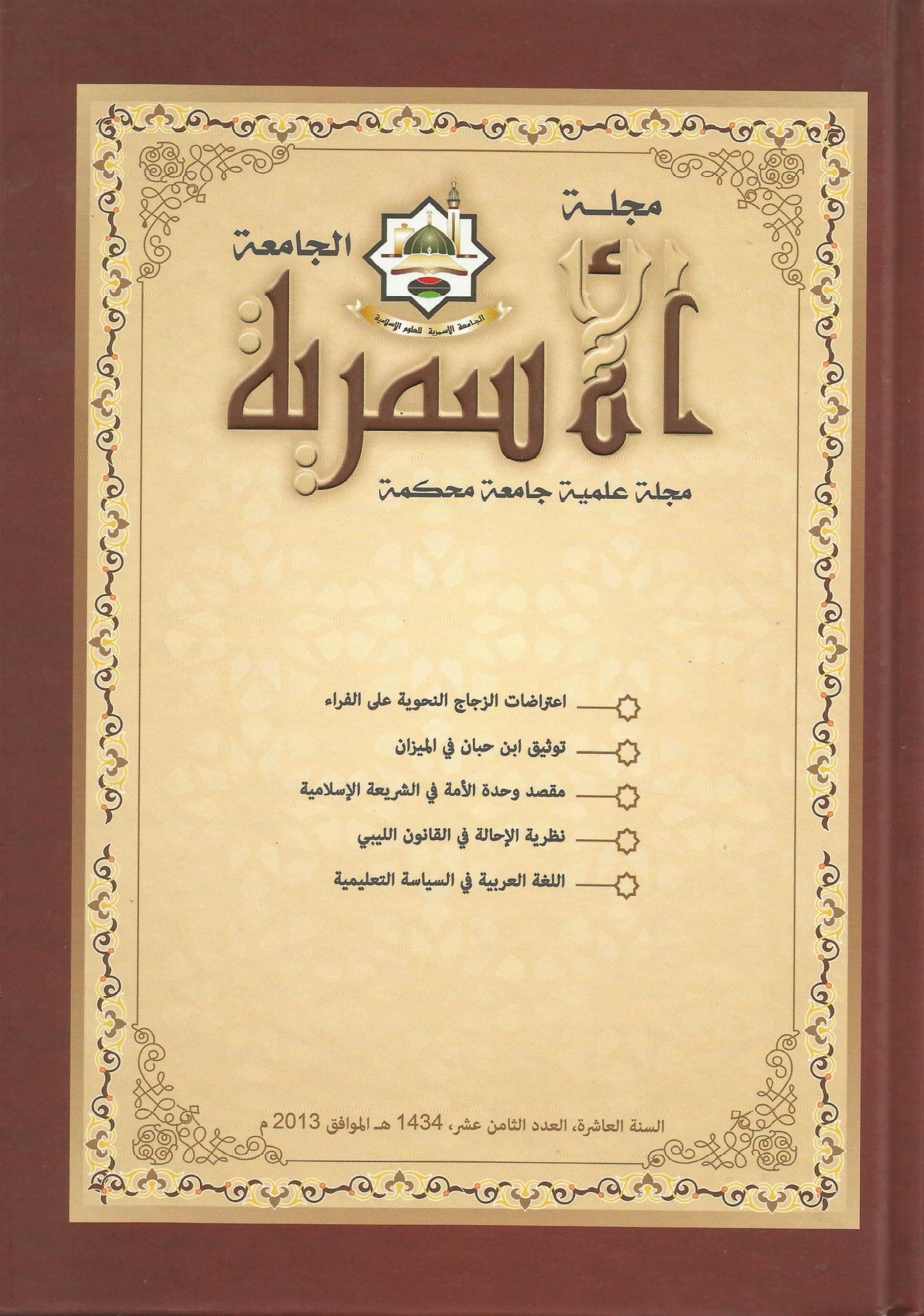النفط الصخري كمادة خام لمصافي النفط التقليدية القائمة في ليبيا
الكلمات المفتاحية:
النفط الصخري، الضغط المائي، التكسير الهيدروليكي، النفط الصخري الليبيالملخص
يشير النفط الصخري (أو النفط الخفيف المحكم) إلى الهيدروكربونات المحتجزة في التكوينات الجيولوجية، حيث لا يمكن للنفط والغاز أن يتدفقا بسهولة إلى أنبوب الإنتاج كما هو الحال في النفط التقليدي، ويمكن الوصول إليه باستخدام تقنيات الحفر الأفقي والتكسير الهيدروليكي، التي تعتمد على كميات كبيرة من المياه والرمل والمواد الكيميائية بضغط عالٍ لفتح شقوق الصخور والسماح للنفط بالتدفق.
تُقدَّر الموارد العالمية من النفط الصخري بما يتراوح بين 330 إلى 1,465 مليار برميل، ومن المتوقع أن يصل الإنتاج العالمي من النفط الصخري إلى 14 مليون برميل يوميًا بحلول عام 2035، وهو ما يعادل حوالي 12٪ من إجمالي الإمدادات النفطية العالمية. وبعد استخراج النفط الصخري، يتم معالجته وتكريره إلى منتجات أكثر فائدة باستخدام آليات التكرير التقليدية.
تُقدّر احتياطيات ليبيا من النفط الصخري بما بين 48 إلى 74 مليار برميل، وتحتل ليبيا المرتبة الخامسة عالميًا في احتياطيات النفط الصخري بعد كل من روسيا، الولايات المتحدة، الصين، والأرجنتين. وتُضاف هذه الكمية الجديدة إلى المخزون، مما يطيل عمر إنتاج النفط الليبي من 70 عامًا إلى 112 عامًا.
تركز هذه الورقة على دراسة إمكانية تعامل المصافي الليبية الحالية، التي تعتمد على النفط التقليدي كمادة خام، مع النفط غير التقليدي (النفط الصخري) المستخرج من الحقول المجاورة لحوض مرزق. ونظرًا إلى أن مصفاة الزاوية (دراسة الحالة) تستخدم حاليًا النفط التقليدي من حقل الشرارة التابع لعمليات ريبسول النفطية (الامتياز NC-115)، يمكن الاستنتاج أنه بناءً على الاعتقاد السائد بين خبراء هندسة المكامن والجيولوجيا، بأن النفط الصخري قد يمتلك خصائص كيميائية وفيزيائية مشابهة للنفط التقليدي، فإن المصفاة التي تعمل على النفط التقليدي قد لا تحتاج إلى أي تطوير أو تحديث لمرافقها الحالية.
وعليه، وفور الانتهاء مستقبلًا من الدراسات المكمنية لحوض مرزق وبدء إنتاج النفط الصخري باستخدام تقنية الحفر الأفقي والتكسير الهيدروليكي من الآبار المستهدفة، سيكون من الممكن البدء مباشرة في ضخ الكميات المنتجة من النفط الصخري نحو مصفاة الزاوية لمعالجته، سواء عبر شبكة الأنابيب الحالية أو من خلال شبكة من المفترض تصميمها خصيصًا لهذا الغرض.
إن نجاح ليبيا في المستقبل في إنتاج وتكرير النفط الصخري الذي تمتلك منه احتياطيات كبيرة، ودخول صناعة النفط الليبية هذا التحدي، سيُعد إنجازًا كبيرًا، خاصة في ظل التقارير والدراسات الحديثة الصادرة عن مراكز أبحاث الطاقة والأسواق العالمية، والتي تؤكد تراجع ونفاد إنتاج النفط التقليدي في معظم دول العالم.
التنزيلات
المراجع
- Hydraulic fracturing for oil & gas – EPA – office of research & development - executive summary - December 2016 - www.epa.gov/hfstudy.
- Fracking 101 – OHIO state university – physics education research group - Gordon J. Aubrecht – April 2012 - www.propublica.org.
- Shale oil - the next energy revolution – February 2013 -www.pwc.co.uk.
- Shale Oil & Gas - A Study on refining – A Technology Landscape - August 2013 – www.lexinnova.com.
- World shale gas & shale oil resources Assessment - Technically Re coverable Shale Oil and Shale Gas Resources - Advanced Resources International Inc. (ARI) - June 2013 - www.eia.gov.
- Difference between Crude Oil and Shale Oil - Chemical composition of crude oil & shale oil - PEDIAA – June 2017 - pediaa.com.
- Process simulation and optimization of crude distillation unit to improve energy efficiency - Recent Advances in Fluid Mechanics and Thermal Engineering - Abdul-Ameer Bandar (Oil & Gas Projects Dept.) -. Pro-Knowledge Eng. Ltd - Australia and Mustafa Oun (Operations Dept.) - Zawiya Oil Refining Company – Libya.
- Downstream Sector - Crude Oil Refinery – Types of refinery –Hydro-skimming refinery - TECNICO LISBOA – Fabusuyi Tosin.
- What is shale oil- AONG manager - / arab-oil-naturalgas.com – 4th January 2017.
- Libyan Petroleum Institute (LPI) – Report No. PRC-Q-243—C-L-/2004 – date of issue 20th October 2004 (Ref. Sample – Well Pad FA-07.
التنزيلات
منشور
إصدار
القسم
الرخصة
الحقوق الفكرية (c) 2021 صبحي خليفة، أحمد الشلحي

هذا العمل مرخص بموجب Creative Commons Attribution 4.0 International License.





